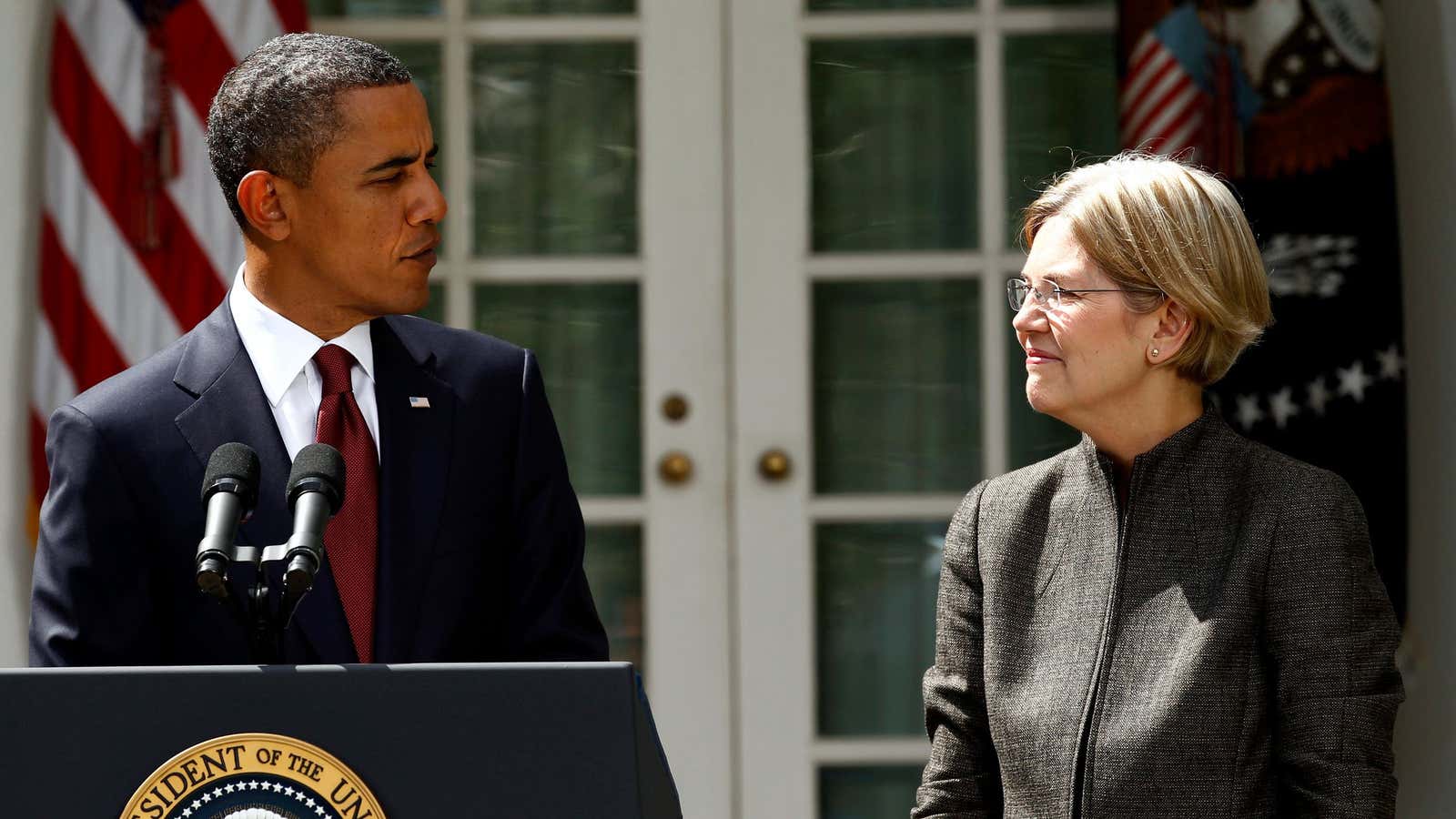Elizabeth Warren, the firebrand critic of the financial industry in the US Senate, may be regretting that time she showed president Barack Obama how to get around obstructive senators.
Obama wanted to appoint Antonio Weiss, a Lazard investment banker, to be his top Treasury official managing domestic financial markets. Left-wing Democrats led by Warren criticized the nominee as too inexperienced and too close to the financial industry; he worked at a major bank and played a tangential role advising Burger King on a merger that would relocate it to Canada. Yesterday (Jan. 12), Weiss withdrew his name.
It will worry Wall Street that even the most liberal financial executives, from firms that didn’t receive bailouts, can’t count on waltzing into a senior job in Washington under a Democratic president. But Weiss will still be working in the Treasury Department. Instead of under-secretary for domestic finance, he will be taking a job as a counselor to Treasury secretary Jack Lew.
That’ll be awkward when the actual under-secretary for domestic finance is eventually confirmed. “Avoiding the public Senate confirmation process but nevertheless installing Mr. Weiss in a very senior position at the Treasury Department is unfortunate for the American people,” Dennis Kelleher, head of the financial reform organization Better Markets, said. ”The country would have benefited from an open, public debate about the Wall Street-centric view that what is good for Wall Street is really good for America.”
But we know this trick well, because Warren once pulled it herself. In 2010, Obama was deciding who would lead the Consumer Financial Protection Bureau, a new financial regulator created after the 2008 financial crisis. The CFPB was in many ways Warren’s brainchild, and she was the popular choice among progressives to lead the new agency, but Republican lawmakers who saw the CFPB as unnecessary and Warren as too much of a populist effectively blocked her.
So Obama gave Warren a job as a White House aide and senior advisor to the Treasury secretary for the CFPB, a position where she effectively set up the new organization without Senate confirmation. Republican lawmakers were not pleased, even after a nominee they could accept—Richard Cordray, the former Ohio attorney general—took over the CFPB, and Warren went to Massachusetts to run for the Senate.
Now that she’s there, Warren is deploying the traps once used against her—like blocking a president’s preferred nominees in search of concessions. The only trouble is, she already taught Obama how to dodge them. The difference is, this time it’s the finance industry’s preferred nominee, rather than a populist critic of it, whom the president is trying to sneak into a Treasury job—which gives some sense of how the 2008 crisis, and Warren herself, have changed Washington.
